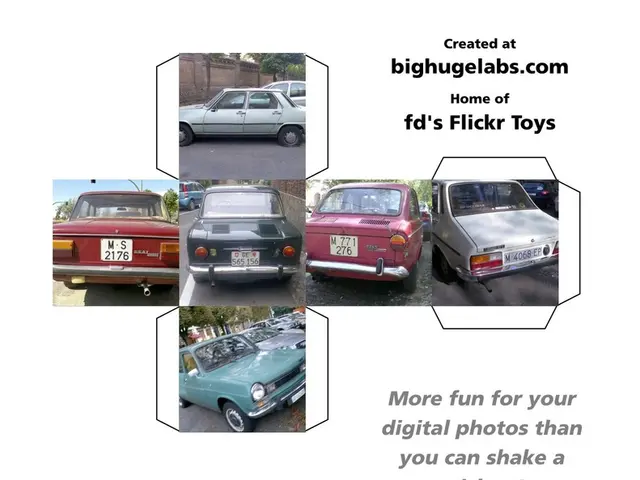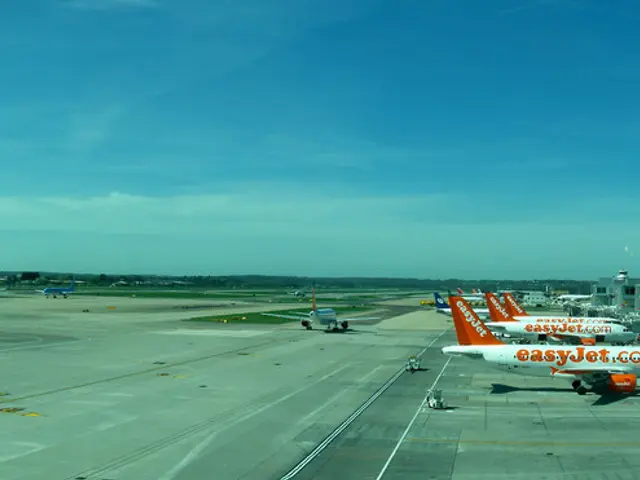Frankfurt Embraces Green Mobility Future: A Game-Changer for Urban Transport!
Frankfurt City Legislature Clears Route for Transit Revitalization - City council in Frankfurt approves traffic modification plan
Yo there! Let's dive into Frankfurt's groundbreaking move towards a greener, more livable city.
In a monumental decision, the city council has given the green light to the "Masterplan Mobility," marking a significant milestone for this bustling, cosmopolitan city. Green Traffic Commissioner Wolfgang Siefert, with a glint in his eye, declared it a "major leap" for Frankfurt's urban landscape.
This concept—delayed by two years—focuses on sustainability, networked traffic, improved logistics, health protection, and traffic safety. With the city's citizens and all transportation modes in mind, it prioritizes people-oriented solutions while considering the environmental, economic, and social aspects. The plan notably champions pedestrians, cyclists, and public transport, aiming to shift the city's mobility patterns by 2035, with these modes accounting for a staggering 80% of all journeys, up from 63% in 2018.
The mobility transition's implementation seeks to boost Frankfurt's status as a livable city and continues to expand space-saving, eco-friendly, and people-friendly transport options. Measures include:
- Expansion of cycling infrastructure: Making cycling more accessible and attractive.
- Strengthening public transport: Enhancing buses, trams, and trains to encourage its use.
- Establishment of low-traffic zones: Promoting walking and biking in city centers.
- Increase in parking fees: Encouraging fewer private vehicle usage.
- Appointment of a pedestrian and logistics coordinator: Ensuring smooth, efficient, and sustainable mobility for all.
- Promotion of e-mobility: Fostering the use of electric vehicles and alternative fuels to reduce emissions.
- Expansion of car-sharing offers: Offering a more accessible and affordable transportation alternative.
The ultimate goal? Achieving climate neutrality in the transport sector by 2035, significant reductions in noise pollution, and fewer road accidents and fatalities.
However, not everyone is thrilled about the plan. Some parts of the opposition argue that cars are being unfairly targeted, with the CDU expressing discontent. The business sector has also voiced concerns, fearing that a harsh, one-sided anti-car policy might deter customers, suppliers, and employees.
This new masterplan replaces the overall transport plan from 2005, aligning Frankfurt with the EU's requirement to submit a sustainable mobility strategy by 2027. Approved by the coalition of Greens, SPD, FDP, and Volt in March of this year, Frankfurt is at the forefront of the transport strategy nationwide.
This ambitious plan was first presented in 2023, developed through the collaboration of administration, science, and the public. Frankfurt reportedly ranks among the first German cities to publish such a comprehensive transport strategy. For more detailed information, checking out official Frankfurt city government or transport authority publications would be the best bet!
- The city council's approval of the "Masterplan Mobility" in Frankfurt signifies a vital step towards promoting green mobility and a more livable city.
- The new mobility plan, scheduled for implementation by 2035, aims to increase the share of pedestrian, cyclist, and public transport journeys to an astounding 80%, up from 63% in 2018.
- This comprehensive strategy includes measures such as improving cycling infrastructure, strengthening public transport, and appointing a pedestrian and logistics coordinator.
- The mobility plan's objective is to achieve climate neutrality in the transport sector by 2035 while significantly reducing noise pollution and road accidents.
- The opposition, including the CDU and the business sector, has criticized the plan, claiming that cars are unfairly targeted.
- The masterplan aligns Frankfurt with the EU's requirement to present a sustainable mobility strategy, positioning the city as a pioneer in the transport strategy movement across Germany.








